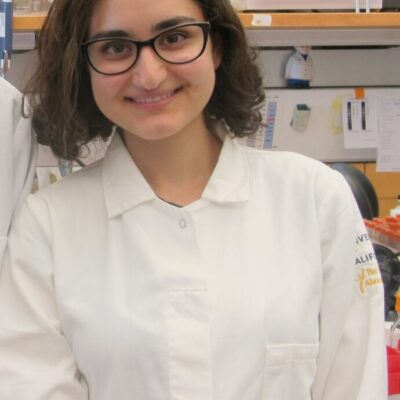Bayan Duwaik Rose Hills
Investigating the Role of the Single-Stranded DNase Activity of CRISPR-Cas12a
CRISPR-Cas systems are indispensable tools in genome editing because they allow scientists to edit an individuals DNA to correct harmful mutations that cause disease. CRISPR-Cas systems are derived from bacteria and archaea where they act as an adaptive immune system of these organisms by targeting viral DNA and RNA for degradation and elimination. Recently, studies have shown that CRISPR-Cas12a can cut non-target sequences of single-stranded DNA (ssDNA) intrinsically. This information is exciting because cells that are constantly replicating, like cancer cells, have a lot of transiently exposed ssDNA which makes them good targets for Cas12as cleavage ability. We want to test whether Cas12a can cut transcriptionally active DNA in vitro using biochemical assays and investigate whether this cutting in vivo causes cell toxicity. This research could reveal unexpected connections between different CRISPR-Cas systems, lead to new ways of harnessing CRISPR-Cas systems with ssDNA-cutting activity for genome engineering, and potentially have applications for using Cas12a as a clinical diagnostic tool for specific diseases and cancer.
Message To Sponsor
My experience this summer helped me grow as a scholar because it was extremely unique. My research project was primarily wet lab based, but the COVID-19 pandemic caused us to transform my research into a more remote project, which has given me the opportunity to become proficient in scientific writing. The SURF 2020 summer internship has influenced my future plans by solidifying my career path. My research from this summer has enlightened me to the wide range of research that physician-scientists can perform and has strengthened my resolve to pursue this career.